Find 24/7 Emergency Plumbers Near You On Plumbyng.co.uk
Fast & Reliable Emergency Plumbing Services
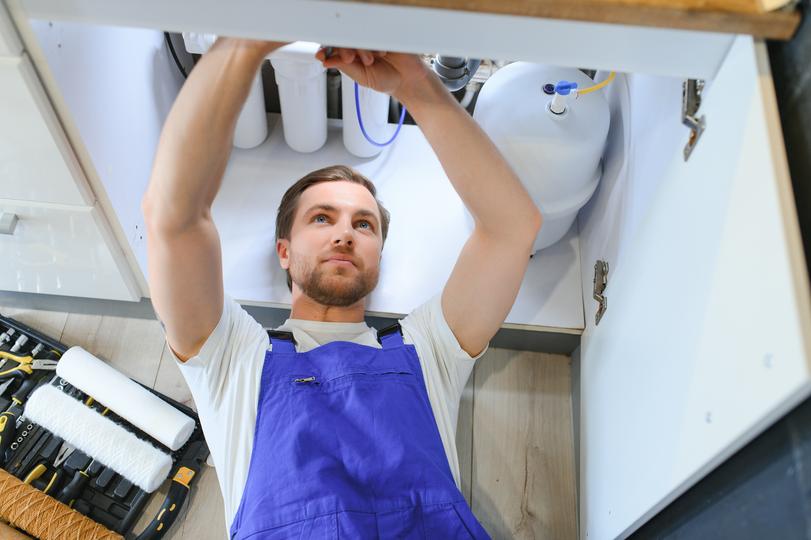
Need a Different Plumbing Service?
Plumbers
Find trusted plumbers near you. Get multiple quotes for plumbing repair, installation, and maintenance services.
Commercial Plumbing Contractors
Experienced commercial plumbers for all your business needs. We handle installation, repair, and maintenance for all types of commercial plumbing systems.
Sewer Repair
Expert sewer line repair and maintenance services. We handle clogs, leaks, and other sewer line issues to keep your property functioning properly.
Tankless Water Heater Installation
Upgrade to a tankless water heater for endless hot water and increased energy efficiency. We offer installation and maintenance services.
Water Heater Service
Professional water heater repair and maintenance services for all types of water heaters. We diagnose and fix problems quickly and efficiently.
Septic Tank Installation
Professional septic tank installation services for homes and businesses. We handle all aspects of the installation process, from planning to final inspection.
Whole House Repiping
Upgrade your plumbing with our comprehensive whole house repiping services. We replace outdated pipes to improve efficiency, water pressure, and reduce leaks.
Hydro Jetting
Clear stubborn clogs and buildup in your drains with our powerful hydro jetting services. We use high-pressure water to effectively clean and restore your plumbi
Finding a 24/7 Emergency Plumber is Easy
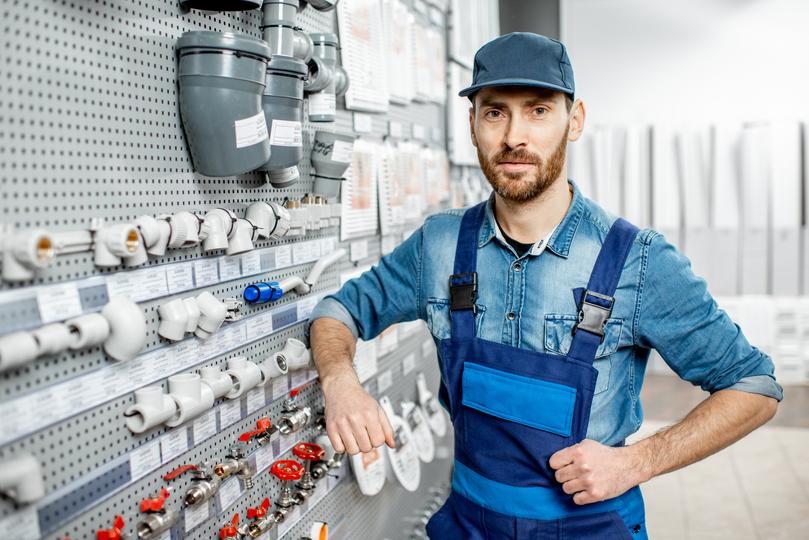
- Describe Your Plumbing Emergency
- Tell us about your plumbing problem, whether it's a burst pipe, overflowing toilet, gas leak, or any other urgent issue. The more details you can provide about the situation, the better we can match you with the right plumber.
- We Connect You With Available Plumbers
- We'll quickly connect you with qualified emergency plumbers in your area who are available 24/7 and have the expertise to handle your specific emergency.
- Choose The Best Plumber
- Review plumbers' profiles, compare their services and availability, and choose the best one to contact.
- Get Immediate Help
- Contact the chosen emergency plumber directly to schedule immediate assistance and resolve your plumbing crisis quickly.
Why Choose Plumbyng.co.uk for Emergency Plumbing?
The smarter way to find Emergency Plumbing Repair contractors

- 24/7 Availability
- Plumbing emergencies don't stick to business hours. That's why we connect you with plumbers who are available around the clock, ensuring you can get help whenever you need it.
- Fast Response Times
- We understand that every minute counts in a plumbing emergency. Our platform helps you find plumbers known for their rapid response times, minimizing damage and disruption to your property.
- Vetted and Licensed Professionals
- We carefully vet all emergency plumbers in our directory, ensuring they are properly licensed and insured, giving you peace of mind knowing that you are hiring a qualified and trustworthy professional.
- Upfront Pricing
- Avoid surprises. Our platform enables you to compare quotes from different emergency plumbers, so you know what to expect before the work begins.
- Wide Range of Services
- Our emergency plumbers handle a wide range of plumbing emergencies, from burst pipes and overflowing toilets to water heater issues and more.
- Easy to Use
- Finding an emergency plumber is quick and straightforward with Plumbyng.co.uk. Simply search by your location and connect with available professionals in your area.
Protecting Your Business From Plumbing Disasters
Commercial Emergency Plumbing Services
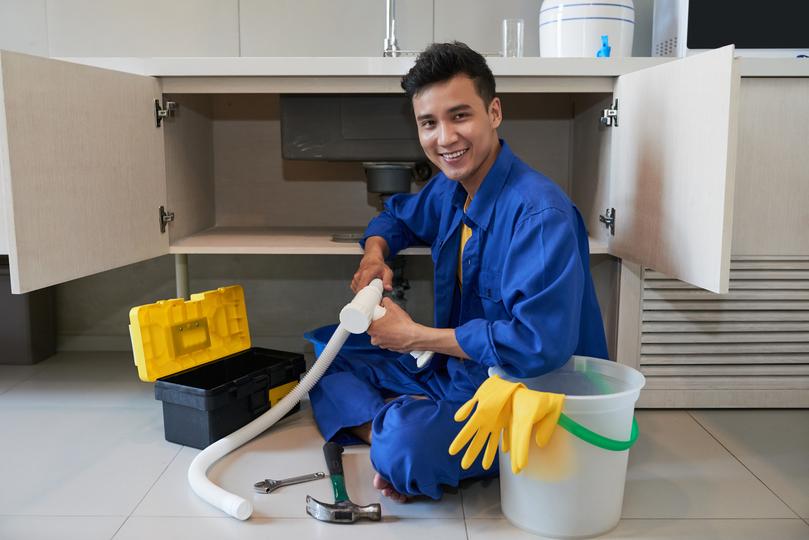
Plumbing Company
Find trusted plumbers near you. Get multiple quotes for plumbing repair, installation, and maintenance services.

Emergency Plumbing Services
Get fast and reliable emergency plumbing services. We respond quickly to leaks, clogs, and other plumbing emergencies.
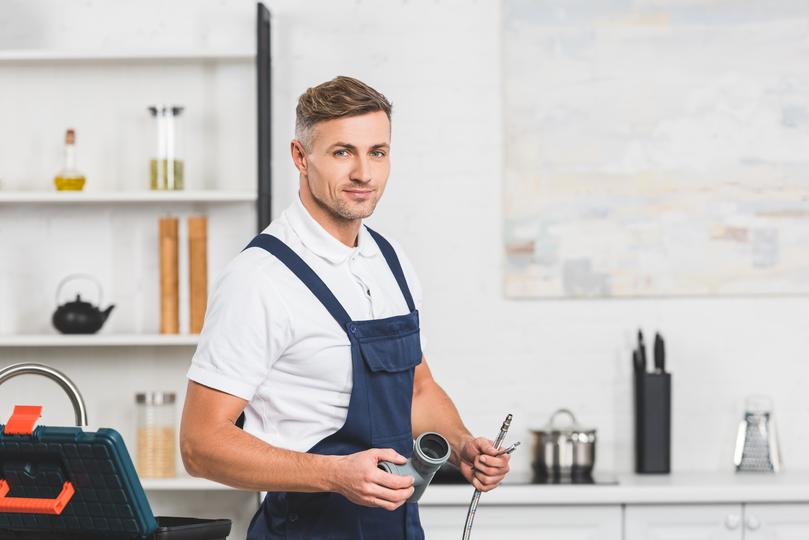
Commercial Plumbing Services
Experienced commercial plumbers for all your business needs. We handle installation, repair, and maintenance for all types of commercial plumbing systems.
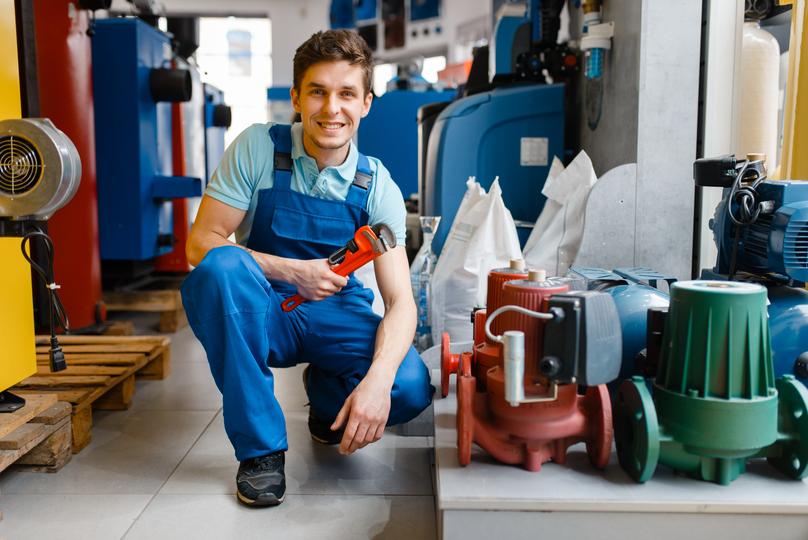
Sewer Line Services
Expert sewer line repair and maintenance services. We handle clogs, leaks, and other sewer line issues to keep your property functioning properly.
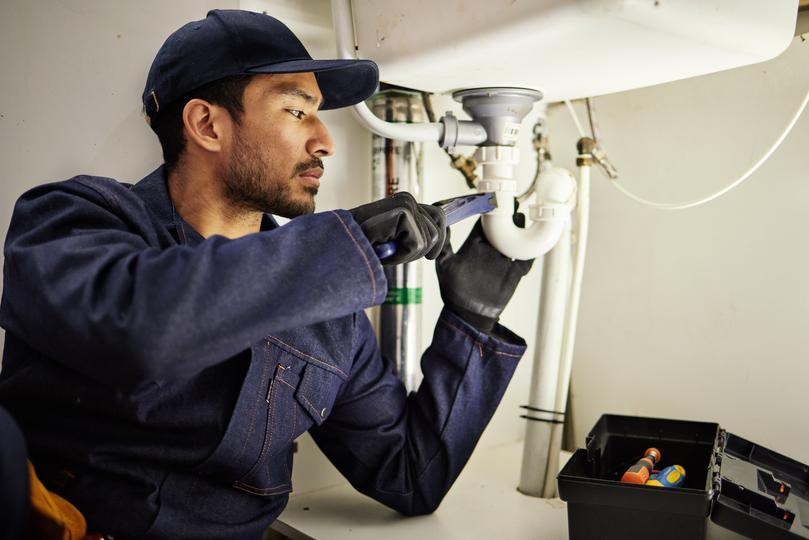
Tankless Water Heater Installation
Upgrade to a tankless water heater for endless hot water and increased energy efficiency. We offer installation and maintenance services.

Water Heater Maintenance
Professional water heater repair and maintenance services for all types of water heaters. We diagnose and fix problems quickly and efficiently.

Septic System Installation
Professional septic tank installation services for homes and businesses. We handle all aspects of the installation process, from planning to final inspection.
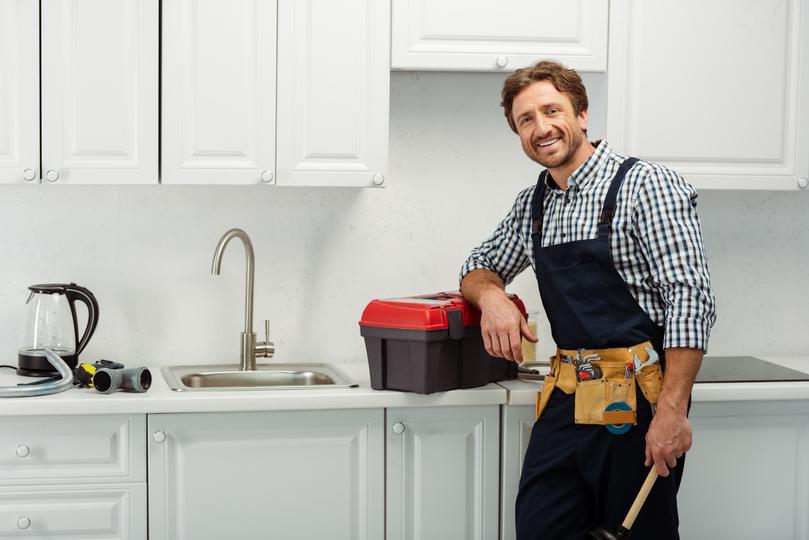
Full House Repiping
Upgrade your plumbing with our comprehensive whole house repiping services. We replace outdated pipes to improve efficiency, water pressure, and reduce leaks.
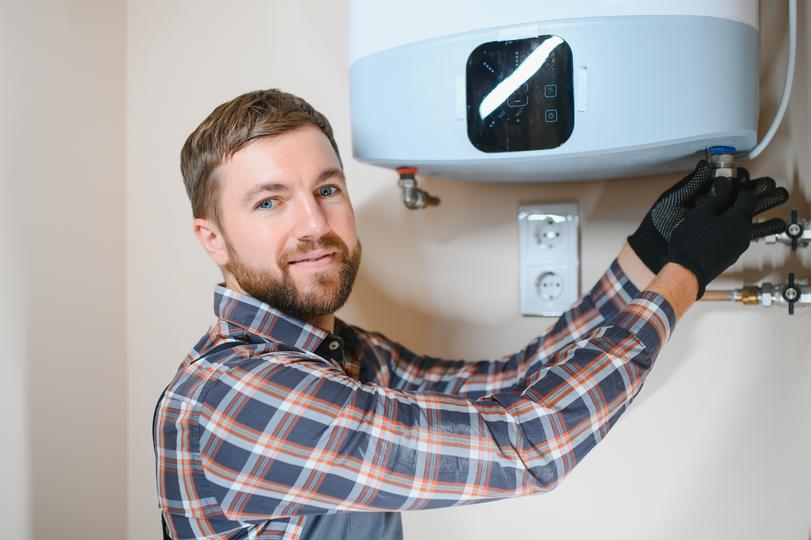
Hydro Jetting
Clear stubborn clogs and buildup in your drains with our powerful hydro jetting services. We use high-pressure water to effectively clean and restore your plumbi
Peace of Mind for Your Home Plumbing Emergencies
Residential Emergency Plumbing Services

Plumbing Company
Find trusted plumbers near you. Get multiple quotes for plumbing repair, installation, and maintenance services.

Emergency Plumbing
Get fast and reliable emergency plumbing services. We respond quickly to leaks, clogs, and other plumbing emergencies.

Sewer Line Cleaning
Expert sewer line repair and maintenance services. We handle clogs, leaks, and other sewer line issues to keep your property functioning properly.

Tankless Water Heater
Upgrade to a tankless water heater for endless hot water and increased energy efficiency. We offer installation and maintenance services.

Water Heater Repair
Professional water heater repair and maintenance services for all types of water heaters. We diagnose and fix problems quickly and efficiently.

Septic Tank Service
Professional septic tank installation services for homes and businesses. We handle all aspects of the installation process, from planning to final inspection.

Whole House Repiping
Upgrade your plumbing with our comprehensive whole house repiping services. We replace outdated pipes to improve efficiency, water pressure, and reduce leaks.

Sewer Jetting
Clear stubborn clogs and buildup in your drains with our powerful hydro jetting services. We use high-pressure water to effectively clean and restore your plumbi
Experiencing a Plumbing Emergency?
Find a 24/7 Emergency Plumber Now on Plumbyng.co.uk
Emergency Plumbing Glossary
Burst Pipe
Overflowing Toilet
Sewer Backup
Gas Leak
Water Heater Leak
Clogged Drain
Leaking Faucet
Running Toilet
Low Water Pressure
Frozen Pipes
Sump Pump Failure
Main Water Shut-Off Valve
Water Meter
Snake (Plumbing)
Hydro Jetting
Emergency Plumber FAQs
How much does an emergency plumber cost?
How to find an emergency plumber near me?
What constitutes a plumbing emergency?
What should I do before an emergency plumber arrives?
- Turn off the main water supply if you have a major leak.
- If you suspect a gas leak, evacuate the house and call your gas company.
- If it is safe to do so, try to contain the water damage.
- Take photos or videos of the damage for insurance purposes.
What questions should I ask an emergency plumber?
- Their experience handling similar emergencies.
- Their response time (how quickly they can arrive).
- Their pricing structure (how charges are calculated).
- Whether they are licensed and insured.
- Their emergency contact information.
Are emergency plumbing services expensive?
What is covered by home insurance for plumbing emergencies?
How to prevent plumbing emergencies?
- Regularly checking for leaks and addressing them promptly.
- Having your plumbing system inspected annually by a qualified plumber.
- Ensuring adequate insulation for pipes in colder climates to prevent freezing.
- Avoiding pouring grease or other substances down the drains that can cause clogs.
- Properly maintaining and cleaning your garbage disposal.
What should I do if I smell gas?
- Evacuate your home or building.
- Call your gas company's emergency line or 999.
- Do not light matches or use electrical appliances near the suspected leak.
- Do not attempt to fix the leak yourself.
What causes a burst pipe?
- Freezing temperatures: Water expands when it freezes, putting immense pressure on pipes that can cause them to burst.
- High water pressure: Excessive water pressure in the pipes can weaken them over time, leading to ruptures.
- Corrosion: Pipes can corrode and weaken over time, making them susceptible to breakage.
- Tree roots: Tree roots growing into sewer or water pipes can cause damage and leaks.
- Ground settling: Movement or shifting of the ground can put stress on pipes, causing breaks.
- Old or damaged pipes: Pipes that are old or damaged from previous issues are more likely to burst.
What is the average cost of an emergency plumber?
- Geographic location: Costs differ by region.
- Time of day or week: Emergency calls outside normal business hours are pricier.
- Complexity of the repair: Simple repairs are cheaper than major issues.
- Materials required: The cost of parts needed will affect the overall price.
How to stop a toilet from overflowing?
How to fix a burst pipe?
- Turn off the main water supply to your home immediately to limit further water damage.
- Call an emergency plumber immediately to have the burst pipe repaired.
- If it is safe to do so, try to contain any water leakage using towels, buckets, or tarpaulins to minimize damage.
- Take photos of the damage for insurance purposes.
What causes a sewer backup?
- Tree roots intruding into the sewer line.
- Accumulation of grease, debris, and other materials.
- Blockages in the sewer pipes.
- Heavy rainfall and flooding that overwhelms the city's sewer system.
- Improper maintenance of the sewer system.
How to tell if you have a gas leak?
- A hissing sound coming from pipes or appliances.
- The distinctive smell of rotten eggs (mercaptan added to natural gas for detection).
- A whistling sound from gas lines.
- Dead vegetation near gas lines.
- Bubbling in puddles of water around gas lines.
What causes a water heater leak?
- Corrosion of the tank due to age or mineral buildup.
- Damage to the water heater's components, such as pipes or valves.
- Cracks in the tank due to pressure or temperature fluctuations.
- Loose connections causing leaks at fittings.
- Improper installation.
How to find a 24/7 emergency plumber?
How to turn off the water main?
What are the signs of a water leak?
- Dripping sounds from pipes or faucets.
- Water stains on walls, ceilings, or floors.
- Damp or musty odors.
- Increased water bills without explanation.
- Mold growth near pipes.
- Soft or spongy spots in walls or floors.
What is a water hammer?
What causes a clogged drain?
How to unclog a drain?
What is hydro jetting?
How to find a licensed plumber near me?
How much does an emergency plumber cost?
How to find an emergency plumber near me?
What constitutes a plumbing emergency?
What should I do before an emergency plumber arrives?
- Turn off the main water supply if you have a major leak.
- If you suspect a gas leak, evacuate the house and call your gas company.
- If it is safe to do so, try to contain the water damage.
- Take photos or videos of the damage for insurance purposes.
What questions should I ask an emergency plumber?
- Their experience handling similar emergencies.
- Their response time (how quickly they can arrive).
- Their pricing structure (how charges are calculated).
- Whether they are licensed and insured.
- Their emergency contact information.
Are emergency plumbing services expensive?
What is covered by home insurance for plumbing emergencies?
How to prevent plumbing emergencies?
- Regularly checking for leaks and addressing them promptly.
- Having your plumbing system inspected annually by a qualified plumber.
- Ensuring adequate insulation for pipes in colder climates to prevent freezing.
- Avoiding pouring grease or other substances down the drains that can cause clogs.
- Properly maintaining and cleaning your garbage disposal.
What should I do if I smell gas?
- Evacuate your home or building.
- Call your gas company's emergency line or 999.
- Do not light matches or use electrical appliances near the suspected leak.
- Do not attempt to fix the leak yourself.
What causes a burst pipe?
- Freezing temperatures: Water expands when it freezes, putting immense pressure on pipes that can cause them to burst.
- High water pressure: Excessive water pressure in the pipes can weaken them over time, leading to ruptures.
- Corrosion: Pipes can corrode and weaken over time, making them susceptible to breakage.
- Tree roots: Tree roots growing into sewer or water pipes can cause damage and leaks.
- Ground settling: Movement or shifting of the ground can put stress on pipes, causing breaks.
- Old or damaged pipes: Pipes that are old or damaged from previous issues are more likely to burst.
What is the average cost of an emergency plumber?
- Geographic location: Costs differ by region.
- Time of day or week: Emergency calls outside normal business hours are pricier.
- Complexity of the repair: Simple repairs are cheaper than major issues.
- Materials required: The cost of parts needed will affect the overall price.
How to stop a toilet from overflowing?
How to fix a burst pipe?
- Turn off the main water supply to your home immediately to limit further water damage.
- Call an emergency plumber immediately to have the burst pipe repaired.
- If it is safe to do so, try to contain any water leakage using towels, buckets, or tarpaulins to minimize damage.
- Take photos of the damage for insurance purposes.
What causes a sewer backup?
- Tree roots intruding into the sewer line.
- Accumulation of grease, debris, and other materials.
- Blockages in the sewer pipes.
- Heavy rainfall and flooding that overwhelms the city's sewer system.
- Improper maintenance of the sewer system.
How to tell if you have a gas leak?
- A hissing sound coming from pipes or appliances.
- The distinctive smell of rotten eggs (mercaptan added to natural gas for detection).
- A whistling sound from gas lines.
- Dead vegetation near gas lines.
- Bubbling in puddles of water around gas lines.
What causes a water heater leak?
- Corrosion of the tank due to age or mineral buildup.
- Damage to the water heater's components, such as pipes or valves.
- Cracks in the tank due to pressure or temperature fluctuations.
- Loose connections causing leaks at fittings.
- Improper installation.
How to find a 24/7 emergency plumber?
How to turn off the water main?
What are the signs of a water leak?
- Dripping sounds from pipes or faucets.
- Water stains on walls, ceilings, or floors.
- Damp or musty odors.
- Increased water bills without explanation.
- Mold growth near pipes.
- Soft or spongy spots in walls or floors.